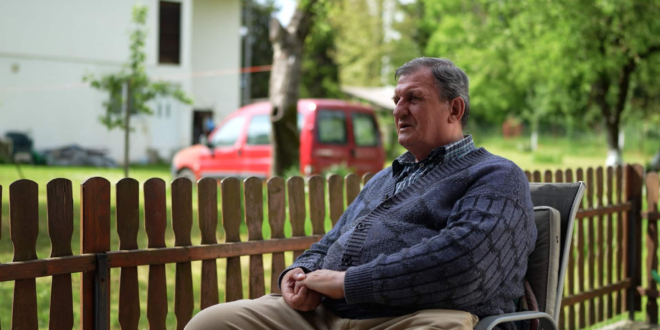Dodik’s refusal to abide by the court ruling, his renewed threats of secession and further severing of ties with the central state have created the worst crisis in Bosnia since the war, when some 100,000 people died.
Bosniak Munira Dzabija, originally from Sarajevo, regularly visits the village of Omacina, where her family had roots, near Bosnia’s eastern border with Serbia; she said there were noticeably fewer people around.
“This year, there are visibly fewer returnees,” she said. “People didn’t dare come back.”
“It is not easy to be a returnee. It is not easy to be here. It is not easy to stay here all day and wait for the night, when even the sound of a plane scares you and you wonder what, what if…”
In Plehan, near Derventa in the north, around 90 Croats who were expelled during the war have since returned.
At the local Franciscan monastery, Father Anto Tomas said certain politicians were acting irresponsibly.
“I would say that some people have entered politics, but they are still not grown up spiritually and psychologically, only physically,” he said. “They are still somewhere in puberty, and it is very difficult to work with adolescents.”
To the east, in Visegrad, site of some of the worst atrocities of the war, Bakira Hasecic proudly showed off her immaculate vegetable patch.
Head of the Women Victims of War Association, Hasecic lives in Sarajevo but spends all her free time at her house in Visegrad, on the Drina.
“I couldn’t accept not being able to return to my Visegrad, not being able to see the graves of my father, my grandmother, my loved ones, my neighbours,” she said. “I couldn’t accept it, regardless of what we went through.”
Hasecic attended the court hearing when Dodik was sentenced. Sitting in the memorial room of a house in Visegrad, where some 70 Bosniak civilians were set on fire in 1992 by Bosnian Serb forces, Hasecic said Bosniak returnees were once more living in fear.
Describing Dodik’s insults and calls for secession as “sabre-rattling”, Hasecic told BIRN: “We are going back to 1992.”
“First of all, I would say to our politicians at all levels – have they ever asked themselves how a returnee lives in my Visegrad today?”
Many, she said, had not returned to sow their fields. “If Milorad Dodik says they [Republika Srpska] will secede, that they will hold a referendum, naturally it affects those who survived. What is the message they are sending you? Secession.”
‘It’s unbearable’
 Eurasia Press & News
Eurasia Press & News



